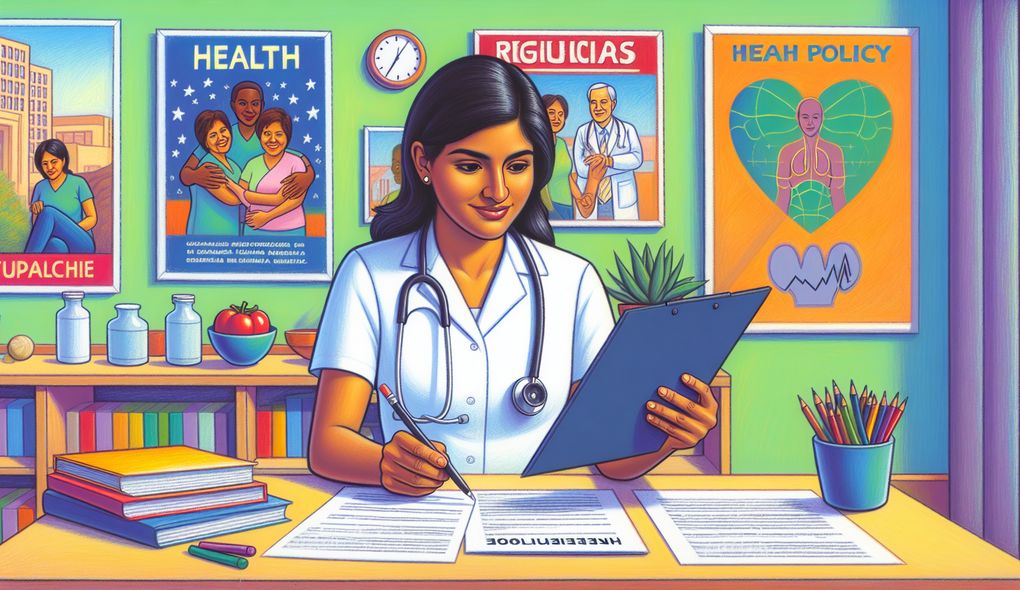What resources or tools do you use to conduct research on healthcare issues and best practices?
JUNIOR LEVEL

Sample answer to the question:
When conducting research on healthcare issues and best practices, I utilize a variety of resources and tools. Firstly, I rely on academic databases such as PubMed, CINAHL, and Cochrane Library to access peer-reviewed articles and research studies. These platforms provide in-depth information on a wide range of healthcare topics. Additionally, I make use of government websites like the Centers for Disease Control and Prevention (CDC) and the World Health Organization (WHO) for updated statistics, guidelines, and policy documents. I also stay updated with relevant journals, healthcare news websites, and newsletters to stay informed about the latest developments in the field. Moreover, I actively engage with professional nursing organizations and attend conferences to network with experts and learn about cutting-edge research and best practices.
Here is a more solid answer:
To conduct comprehensive research on healthcare issues and best practices, I employ a multi-faceted approach. Firstly, I leverage my expertise in policy analysis and critical thinking to identify relevant research questions and hypothesis. I utilize academic databases such as PubMed, CINAHL, and Cochrane Library to access peer-reviewed articles and research studies. By critically analyzing and synthesizing the literature, I am able to identify best practices and evidence-based outcomes. In addition, I actively engage with stakeholders in the healthcare industry, including nursing organizations, research institutions, and government agencies. Collaborating with these stakeholders allows me to gain insights from diverse perspectives and incorporate them into my research. Furthermore, I utilize data analysis software such as SPSS and Excel to organize and analyze research findings. This enables me to draw meaningful conclusions and make informed recommendations for policy development. Finally, I effectively communicate my research findings through clear and concise written reports, policy briefs, and presentations, ensuring that key stakeholders are informed and engaged.
Why is this a more solid answer?
The solid answer expands on the basic answer by providing specific details about the candidate's experience in utilizing the mentioned resources and tools. It also highlights the candidate's ability to critically analyze and synthesize research findings, engage with stakeholders, and effectively communicate research outcomes. However, it could be improved by including examples of specific research projects or policy recommendations that the candidate has worked on.
An example of a exceptional answer:
In my role as a Junior Health Policy Nurse, I have honed a comprehensive approach to conducting research on healthcare issues and best practices. To ensure a robust research process, I begin by conducting a thorough literature review using academic databases like PubMed, CINAHL, and Cochrane Library. This allows me to access a wide range of peer-reviewed articles, systematic reviews, and meta-analyses. However, I don't stop at literature review alone. I delve deeper by utilizing grey literature, including policy briefs, government reports, and program evaluations, to gain a comprehensive understanding of current healthcare issues and practices. Additionally, I actively engage with key stakeholders, such as healthcare administrators, policy analysts, and fellow healthcare professionals, through interviews and focus groups. This qualitative research approach helps me gain diverse perspectives and valuable insights that complement the quantitative data. Furthermore, I have developed strong data analysis skills using software like SPSS and Excel. By conducting statistical analysis, I can effectively identify trends, correlations, and patterns in large data sets, enabling me to generate evidence-based recommendations. Finally, my strong writing and communication skills allow me to effectively disseminate research findings through clear and concise reports, policy briefs, and presentations. I prioritize tailoring the communication to different audiences, ensuring that key stakeholders are well-informed and engaged. Overall, my comprehensive and multi-faceted approach to research equips me with the necessary tools to identify and contribute to evidence-based healthcare policies and practices.
Why is this an exceptional answer?
The exceptional answer demonstrates an in-depth understanding of research methodologies and showcases the candidate's ability to utilize diverse resources and tools, such as grey literature and qualitative research methods, to gather insights from multiple perspectives. It also highlights their strong data analysis skills and clear communication abilities. The answer goes beyond the basic and solid answers by providing specific examples of how the candidate has utilized these resources and tools in their previous work. Additionally, the answer showcases the candidate's commitment to evidence-based healthcare policy-making.
How to prepare for this question:
- Stay updated with the latest research and policy developments in healthcare through subscribing to relevant journals, newsletters, and healthcare news websites.
- Familiarize yourself with academic databases such as PubMed, CINAHL, and Cochrane Library, and practice conducting literature reviews to gain proficiency in accessing and synthesizing research articles.
- Develop your skills in data analysis using software like SPSS and Excel, as these skills are essential for interpreting and drawing meaningful conclusions from research data.
- Actively engage with key stakeholders in the healthcare industry, such as nursing organizations, research institutions, and government agencies, to build a network and gain insights from diverse perspectives.
- Practice communicating research findings in a clear and concise manner through written reports, policy briefs, and presentations. Tailor your communication to different audiences to ensure effective dissemination of research outcomes.
What are interviewers evaluating with this question?
- Policy analysis
- Critical thinking
- Interpersonal communication
- Research and data analysis
- Stakeholder engagement
- Writing and documentation

